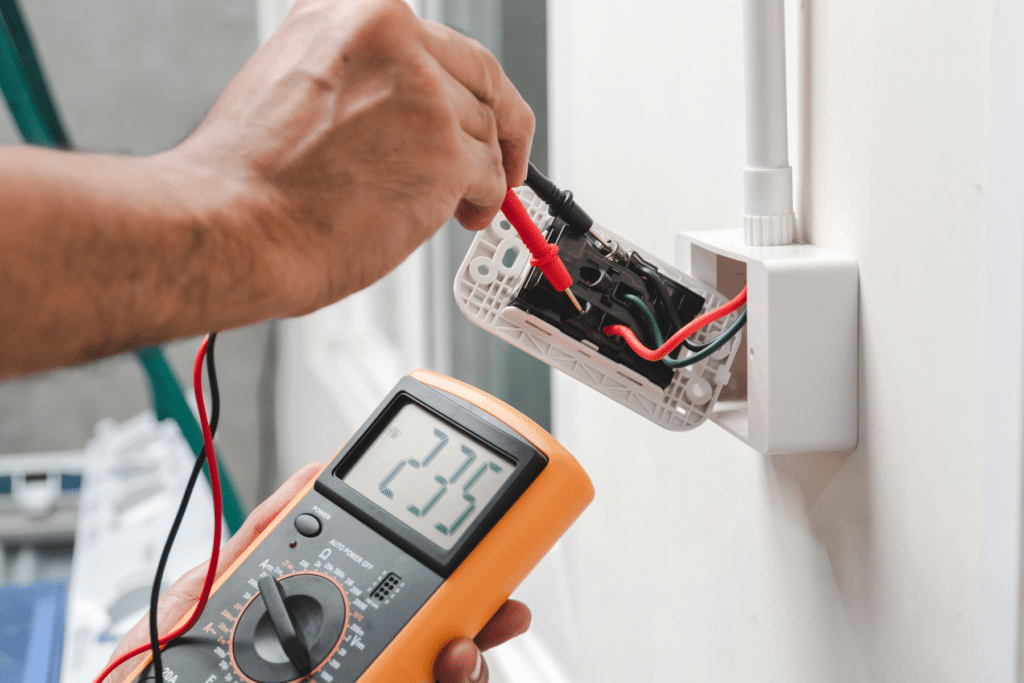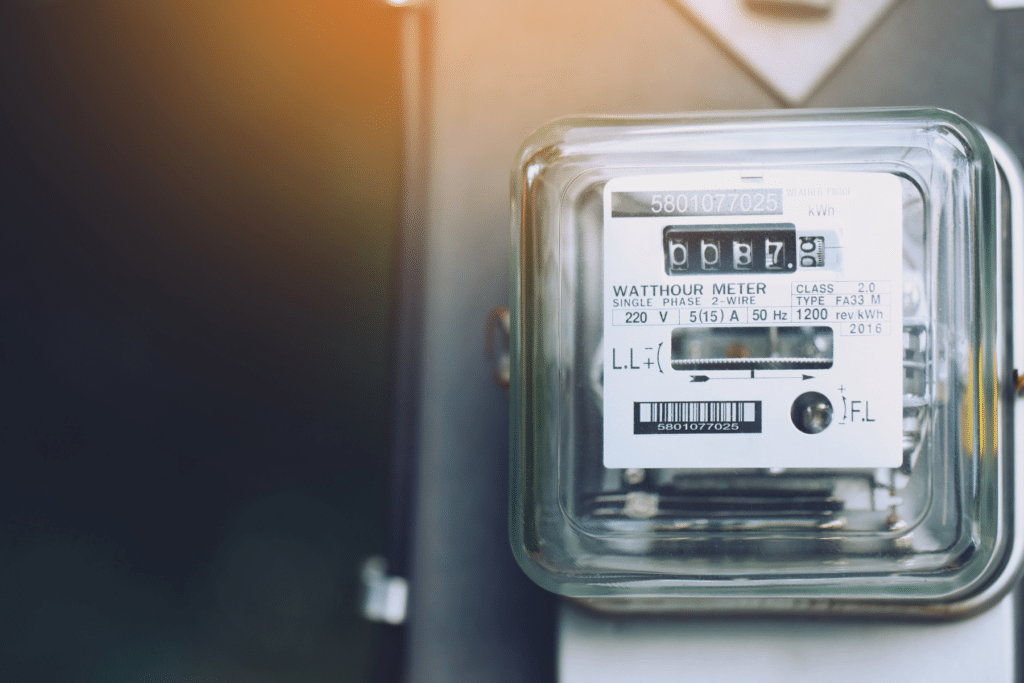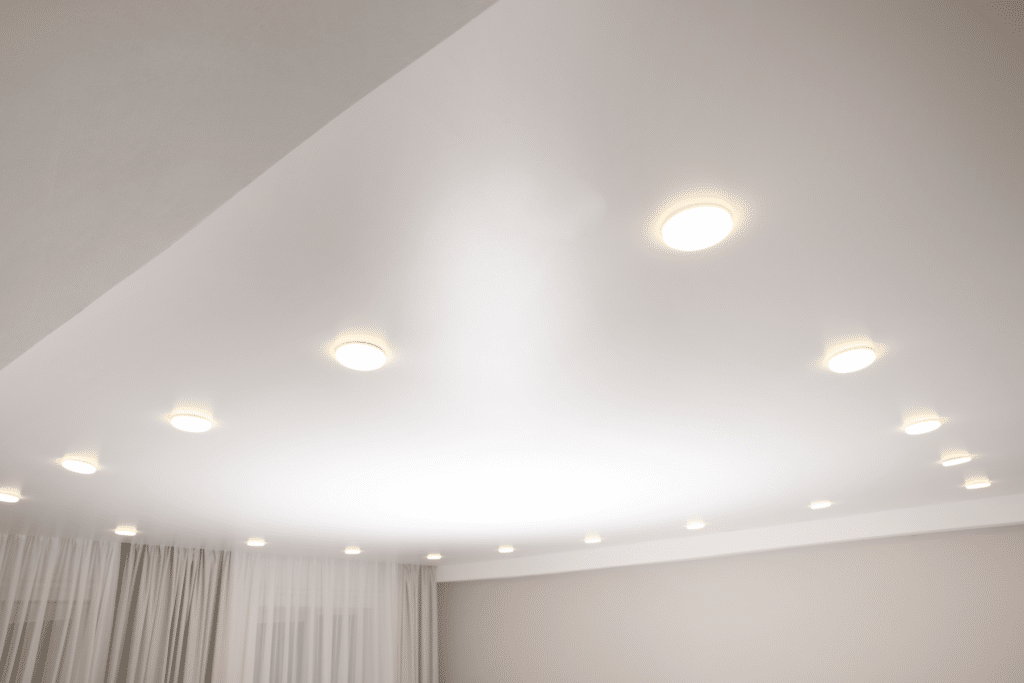How Do You Save On Electric Bills?
To lower electric bills, consider switching to energy-efficient appliances. For instance, replacing incandescent bulbs with LED bulbs can significantly cut energy usage, as LEDs consume up to 90% less energy and have a longer lifespan, offering savings over time despite their higher initial cost. Additionally, utilizing smart power strips can prevent phantom loads, potentially saving up to $100 annually by powering down electronics when not in use. Moreover, upgrading to a programmable or smart thermostat can optimize heating and cooling efficiency, automatically adjusting temperatures based on occupancy, potentially saving about 8% on heating and cooling costs. Strategies from Leopard Electric not only reduce energy consumption but also contribute to substantial long-term savings on electricity bills.
The Importance of Electrical Conservation for Homeowners
Electrical conservation is important for homeowners for several reasons. Firstly, excessive electricity use has a significant impact on the environment. The production of electricity often relies on fossil fuels, which release greenhouse gas emissions and contribute to climate change. By conserving electricity, homeowners can reduce their carbon footprint and help mitigate the effects of climate change. Secondly, electrical conservation can lead to significant cost savings for homeowners. Electricity bills can make up a significant portion of monthly expenses, and reducing energy consumption can result in lower utility bills. By implementing energy-saving strategies and using energy-efficient appliances, homeowners can save money in the long run. Electrical conservation helps to preserve valuable energy resources. Fossil fuels, such as coal, oil, and natural gas, are finite resources that are being depleted at an alarming rate. By conserving electricity, homeowners can help prolong the lifespan of these resources and reduce the need for further extraction.

Understanding the Impact of Excessive Electricity Use
Excessive electricity use has significant implications for the environment. The production of electricity often relies on the burning of fossil fuels, such as coal, oil, and natural gas, which release greenhouse gas emissions into the atmosphere. These greenhouse gases, including carbon dioxide, contribute to climate change and global warming. The extraction and consumption of fossil fuels have detrimental effects on the environment. The extraction process can lead to habitat destruction, water pollution, and air pollution. The combustion of fossil fuels releases pollutants that contribute to air pollution, smog, and respiratory health issues. By reducing electricity consumption and adopting energy-saving measures, homeowners can help mitigate these environmental impacts and contribute to a more sustainable future.
The Dual Benefits: Saving Money and Protecting the Environment
Conserving electricity at home brings dual benefits: saving money and protecting the environment. By reducing electricity consumption, homeowners can lower their electricity bills significantly. This not only leads to immediate savings but also contributes to a greener planet by reducing overall energy usage and greenhouse gas emissions. Implementing efficiency measures, such as using energy-efficient appliances and smart thermostats, can make a big difference in both your utility bills and carbon footprint. Every small change, from switching to energy-saving light bulbs to leveraging renewable energy sources, adds up to substantial energy savings and a positive impact on the environment. Making conscious choices in energy consumption not only benefits your wallet but also helps in creating a more sustainable future for all.
Assessing Your Home’s Electrical Usage
Assessing your home’s electrical usage is a crucial step in identifying areas where energy conservation measures can be implemented. One effective way to assess your home’s energy consumption is by conducting an energy audit. An energy audit involves evaluating your home’s energy use, identifying areas of inefficiency, and providing recommendations for improvement. During an energy audit, a professional technician will examine various aspects of your home, including insulation, appliances, lighting, and heating and cooling systems. They may also analyze utility bills and conduct tests to measure air leakage and energy consumption. By conducting an energy audit, homeowners can gain valuable insights into their home’s energy usage and identify opportunities for energy conservation and cost savings.

Conducting an Energy Audit with Leopard Electric
Conducting an energy audit is a valuable tool for homeowners to assess their home’s energy consumption and identify areas for improvement. Leopard Electric offers professional energy audit services to help homeowners understand their energy usage and make informed decisions about energy conservation. During an energy audit with Leopard Electric, a certified technician will evaluate various aspects of your home’s energy efficiency, including insulation, appliances, lighting, and heating and cooling systems. They will also analyze utility bills and perform tests to measure air leakage and energy consumption.
Based on the findings of the energy audit, Leopard Electric will provide recommendations for energy-saving measures that can be implemented in your home. These may include upgrading to energy-efficient appliances, improving insulation, and optimizing heating and cooling systems. By partnering with Leopard Electric for an energy audit, homeowners can gain valuable insights and guidance to enhance their home’s energy efficiency and reduce their environmental impact.
Identifying Key Energy Drainers in Your Home
Identifying key energy drainers in your home is essential for effective energy conservation. By understanding the appliances and systems that consume the most energy, homeowners can target these areas for improvement and implement energy-saving measures.
Common energy drainers in the home include appliances in standby mode, inefficient light bulbs, and outdated and inefficient appliances. Appliances and electronics left in standby mode continue to consume energy even when not in use, known as phantom energy or vampire energy. Switching these devices off completely or using smart power strips can eliminate this wastage.
Inefficient light bulbs, such as traditional incandescent bulbs, consume more energy and have shorter lifespans compared to energy-efficient alternatives like LED bulbs. By replacing these bulbs with LED lighting, homeowners can reduce energy consumption and save on electricity costs.
Outdated and inefficient appliances, such as refrigerators or air conditioning units, can also contribute to excessive energy use. Upgrading to energy-efficient models with the Energy Star label can significantly reduce energy consumption and lower utility bills.
By identifying and addressing these key energy drainers, homeowners can make substantial progress in conserving electricity and reducing their environmental impact.
Simple Yet Effective Electrical Conservation Strategies
Implementing simple yet effective electrical conservation strategies can make a significant difference in reducing energy consumption and saving money on electric bills. By making small changes in daily habits and adopting energy-saving technologies, homeowners can achieve meaningful energy savings.
One effective strategy is switching to LED lighting. LED light bulbs use up to 90 percent less energy than traditional incandescent bulbs and last longer. This switch can result in significant energy savings over time.
Another strategy is mastering the use of power strips and smart plugs. These devices allow homeowners to control the power supply to electronics and eliminate phantom energy usage. By using power strips and smart plugs, homeowners can easily turn off appliances when not in use and reduce energy wastage.
Switching to LED Lighting: A Bright Idea
Switching to LED lighting is a bright idea for homeowners looking to conserve electricity and save on their electric bills. LED light bulbs offer numerous advantages over traditional incandescent bulbs, including:
- Energy efficiency: LED bulbs use up to 90 percent less energy than incandescent bulbs, resulting in significant energy savings.
- Long lifespan: LED bulbs have a longer lifespan, lasting up to 25 times longer than traditional bulbs. This means homeowners will spend less on replacements.
- Brightness and color options: LED bulbs offer a wide range of brightness levels and color temperatures to suit different lighting needs and preferences.
- Durability: LED bulbs are more durable and resistant to shock and vibration, making them ideal for various applications.
By replacing traditional incandescent bulbs with LED lighting throughout the home, homeowners can achieve significant energy savings and reduce their environmental impact.

Mastering the Use of Power Strips and Smart Plugs
Mastering the use of power strips and smart plugs is a smart way to conserve electricity and reduce energy wastage in the home. These devices allow homeowners to control the power supply to electronic devices and eliminate phantom energy usage.
Power strips, also known as advanced power strips, provide a centralized power source for multiple devices. They can be easily switched off when not in use, cutting off power supply to all connected devices simultaneously. This helps eliminate standby energy consumption.
Smart plugs take energy conservation a step further by allowing homeowners to control power supply to individual devices remotely. They can be programmed to turn off devices at scheduled times or based on specific conditions. Smart plugs are especially useful for devices that are difficult to manually switch off, such as entertainment systems or computer setups.
By using power strips and smart plugs, homeowners can easily and effectively reduce energy wastage and lower their electricity bills.
Cut Your Electric Bills With Leopard Electric
Leopard Electric is dedicated to helping homeowners cut their electric bills and reduce their energy costs. As a trusted provider of electrical services, Leopard Electric offers professional advice and support in electrical conservation efforts. Our team of experts can conduct energy audits to identify areas of energy waste and recommend energy-efficient solutions. From upgrading outdated appliances to installing energy-saving devices, Leopard Electric can help homeowners optimize their energy usage and reduce their electricity bills. With our expertise and commitment to energy conservation, Leopard Electric is a valuable partner for homeowners looking to make a positive impact on their energy consumption and save money on their utility bills. Reach out to us for quotes and questions. Take a look at Our Blog for more information.
Frequently Asked Questions
What are the first steps to take in conserving electricity at home?
To conserve electricity at home, the first step is to conduct an energy audit. An energy audit helps homeowners identify areas of energy waste and determine their total energy usage. By understanding how and where electricity is being consumed, homeowners can make informed decisions about energy-saving measures. Small changes such as turning off lights when not in use, unplugging electronics, and using energy-efficient appliances can also contribute to conserving electricity. By taking these initial steps, homeowners can start their journey towards electrical conservation and make a positive impact on their energy consumption.
Are smart appliances worth the investment for energy saving?
Smart appliances can be a worthwhile investment for energy-saving purposes. These appliances are designed with advanced features and built-in technology that optimize energy consumption. Smart appliances can automatically adjust their settings based on usage patterns and energy demand. For example, a smart dishwasher may detect when the load is not full and adjust the water and energy usage accordingly. While smart appliances may have a higher upfront cost compared to standard models, they can result in long-term energy savings and lower utility bills. Additionally, some smart appliances can be controlled remotely, allowing homeowners to monitor and adjust their energy usage even when they are not at home. Smart appliances offer convenience, energy efficiency, and potential cost savings, making them a worthwhile investment for homeowners focused on energy conservation.
Can energy conservation really make a difference in utility bills?
Absolutely! Energy can make a significant difference in utility bills. By implementing energy-saving measures as using energy-efficient appliances, adjusting thermostat settings, and practicing energy-conscious, homeowners can reduce their energy consumption and lower their utility bills. Small changes like turning off lights when not in use, unplugging electronics, and using natural light whenever possible can add up to significant energy savings over time. Energy-efficient appliances and smart devices can further optimize energy usage and reduce electricity waste. By being mindful of energy consumption and actively practicing energy conservation, homeowners can make a noticeable impact on their utility bills and enjoy the financial benefits of reduced energy costs.
How does Leopard Electric support homeowners in electrical conservation?
Leopard Electric is committed to supporting homeowners in their electrical conservation efforts. They provide professional advice and expertise to help homeowners identify areas of energy waste and recommend energy-efficient solutions. Leopard Electric’s team of experts can conduct energy audits to assess a home’s energy usage and suggest improvements for optimizing energy efficiency. They can also assist with the installation of energy-saving devices, such as smart thermostats and energy-efficient appliances. With their knowledge and experience in electrical conservation, Leopard Electric is a valuable resource for homeowners looking to reduce their energy consumption, lower their utility bills, and make their homes more environmentally friendly. Homeowners can rely on Leopard Electric for reliable and professional support in their journey towards electrical conservation.
What are some common misconceptions about electrical conservation?
There are a few common misconceptions about electrical conservation that need to be addressed. One misconception is that energy conservation requires significant lifestyle changes or sacrifices. However, conserving energy can be achieved through simple, everyday actions such as turning off lights when not in use or using energy-efficient appliances. Another misconception is that energy conservation doesn’t make a significant impact on utility bills. In reality, small changes in energy consumption can add up over time and lead to noticeable savings on utility bills. Additionally, some homeowners may believe that renewable energy sources are not accessible or affordable. However, the availability and affordability of renewable energy options, such as solar power, have improved significantly in recent years. It’s important to dispel these misconceptions and emphasize that energy conservation is achievable, impactful, and beneficial for both the environment and homeowners’ financial well-being.


